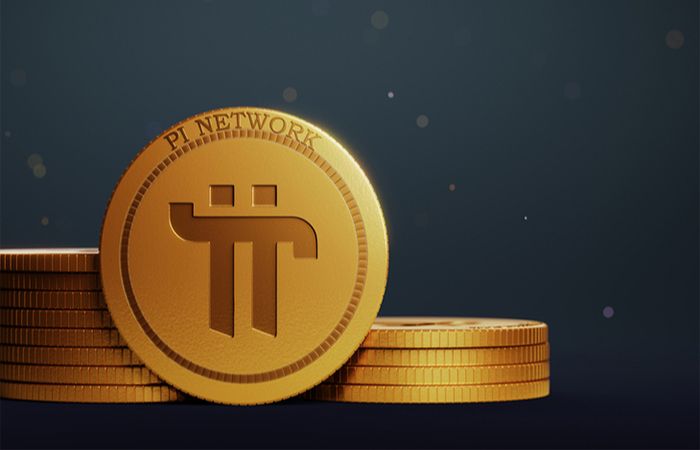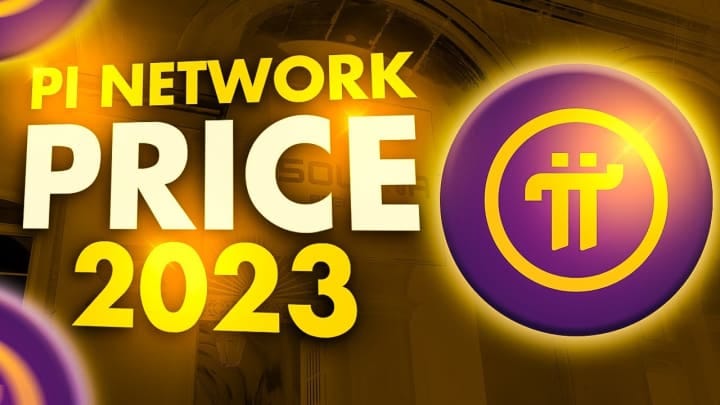Is Pi Network Compliant With Global Crypto Laws?

Executive Summary

The Pi Network, a cryptocurrency project aiming for mainstream adoption, operates in a complex regulatory landscape. This article explores the Pi Network’s compliance with global crypto laws, acknowledging the evolving nature of this regulatory framework. While Pi Network strives for compliance, its decentralized structure and ongoing development present unique challenges and uncertainties regarding its future legal standing in various jurisdictions. We will examine key aspects of its operations and their potential legal implications, focusing on crucial factors like KYC/AML compliance, security protocols, and its overall adherence to international standards. Ultimately, navigating the legal intricacies of Pi Network requires continuous monitoring and a nuanced understanding of the constantly shifting regulatory terrain.

Introduction
The Pi Network, a mobile mining cryptocurrency, has attracted millions of users globally. Its innovative approach to mining, allowing users to mine Pi on their phones, has sparked significant interest. However, the legal landscape surrounding cryptocurrencies remains volatile and fragmented, leading to considerable uncertainty about Pi Network’s compliance with various national and international laws. This article delves into the complexities of Pi Network’s legal status, exploring its adherence to global regulatory frameworks. We’ll analyze its current practices and discuss potential future implications.
Frequently Asked Questions (FAQs)
Q1: Is Pi Network legal in my country?
A1: The legality of Pi Network varies significantly across jurisdictions. Some countries have clear and comprehensive cryptocurrency regulations, while others are still developing their frameworks. It’s crucial to research your local laws and regulations regarding cryptocurrencies before participating in the Pi Network. The project itself encourages users to adhere to local regulations.
Q2: Does Pi Network comply with Know Your Customer (KYC) and Anti-Money Laundering (AML) regulations?
A2: Pi Network’s KYC/AML compliance is a phased approach. Initially, KYC requirements were minimal, primarily focused on preventing bot accounts. However, as Pi Network progresses toward its mainnet launch, stricter KYC/AML measures are expected to be implemented to meet the requirements of various regulatory bodies globally. The ultimate extent of its KYC/AML compliance will depend on evolving regulatory pressures and the project’s own timeline.
Q3: What happens if Pi Network is deemed illegal in my country?
A3: If Pi Network is declared illegal in your jurisdiction, your participation could have legal consequences. This could range from fines to more severe penalties, depending on the specific laws and enforcement practices of your country. Therefore, remaining aware of local laws and regulations is paramount.
KYC/AML Compliance and Security
Pi Network’s approach to KYC/AML compliance has been a subject of debate. Initially, verification requirements were less stringent, focusing mainly on preventing fraudulent accounts. As the project matures, and especially as it moves towards a mainnet launch, more robust KYC/AML procedures will be necessary to comply with international standards and prevent the use of the network for illicit activities. The extent of their future compliance will be crucial in determining its long-term viability and acceptance within the global financial system.
- Phased Implementation: Pi Network’s KYC/AML implementation is planned as a gradual process, potentially evolving with the different stages of its development.
- Collaboration with Regulators: The success of their KYC/AML program will rely heavily on their ability to work collaboratively with regulatory bodies worldwide.
- Technological Solutions: The adoption of innovative blockchain technologies could play a key role in enhancing their KYC/AML infrastructure.
- User Education: Educating users about their responsibilities in complying with KYC/AML regulations is vital for the project’s success and legitimacy.
- Transparency: Open communication regarding their compliance efforts will bolster trust among users and regulators.
Data Privacy and User Security
Protecting user data is another vital aspect of Pi Network’s compliance. The network collects user data during registration and ongoing activity. The security of this data, and its compliance with international data privacy regulations (such as GDPR), is critical. Breaches or non-compliance could damage the project’s reputation and lead to significant legal repercussions.
- Data Encryption: Employing robust encryption methods to protect user data is paramount.
- Data Minimization: Collecting only the necessary data, and avoiding unnecessary data collection practices, is crucial.
- Transparency Policy: A clear and accessible privacy policy, outlining data collection, usage, and security practices, is essential.
- Compliance with GDPR and Similar Regulations: Ensuring adherence to the GDPR and other relevant data privacy regulations in different jurisdictions is mandatory.
- Security Audits: Regular independent security audits will help identify and address vulnerabilities promptly.
Regulatory Scrutiny and Legal Uncertainty
The cryptocurrency industry is under intense scrutiny globally. Governments are actively developing regulations to manage the risks associated with cryptocurrencies, including issues like taxation, money laundering, and market manipulation. Pi Network, as a cryptocurrency project, is subject to these evolving regulatory frameworks. Its ability to navigate this uncertain legal landscape will heavily influence its long-term success.
- Jurisdictional Differences: Cryptocurrency regulations vary significantly across jurisdictions, making global compliance a complex undertaking.
- Tax Implications: The taxation of Pi tokens will be determined by individual countries’ tax laws, which might vary considerably.
- Anti-Money Laundering (AML) Compliance: Stringent AML regulations will require Pi Network to implement robust measures to prevent money laundering.
- Securities Laws: Depending on the classification of Pi tokens, securities laws in various jurisdictions could apply.
- Market Manipulation: The project needs to safeguard against market manipulation to maintain its integrity and credibility.
Mainnet Launch and Future Regulatory Challenges
The launch of the Pi Network mainnet is a significant milestone, which will likely bring intensified regulatory scrutiny. Once the mainnet is operational, Pi will likely be more easily exchanged, potentially triggering stricter regulatory attention. The success of Pi Network’s post-mainnet phase hinges on its ability to meet the regulatory requirements imposed by various jurisdictions.
- Compliance with Security and Exchange Commission (SEC) Regulations: In jurisdictions like the USA, compliance with SEC regulations is crucial.
- International Cooperation: International cooperation among regulatory bodies is essential for a cohesive global regulatory framework.
- Adaptability to Evolving Regulations: The ability of Pi Network to adapt to evolving regulatory landscapes will be vital.
- Technological Advancements: Investing in advanced technologies to bolster security and compliance is a key aspect.
- Community Engagement: Maintaining a strong relationship with its community and keeping users informed about regulatory updates is vital.
Conclusion
The Pi Network operates in a dynamically evolving regulatory environment. While it has taken steps to address certain compliance issues, significant uncertainties remain, particularly concerning its long-term adherence to global crypto laws. The phased implementation of KYC/AML measures, the approach to data privacy, and the ability to adapt to future regulations will all be critical factors in determining its legal standing and widespread adoption. Continuous monitoring of legal developments and proactive engagement with regulatory bodies are essential for the project’s continued success. The legality of Pi Network is ultimately dependent on the interpretation and application of national and international laws, which vary across jurisdictions. Therefore, individual users bear the responsibility of understanding and complying with the laws in their respective regions.
Keywords:
Pi Network, Cryptocurrency Regulation, KYC/AML Compliance, Data Privacy, Mainnet Launch, Global Crypto Laws, Legal Uncertainty


